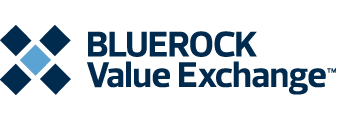Accredited Investor: Defined in Rule 501 of Regulation D to refer to investors who are financially sophisticated and have a reduced need for the protection provided by certain government filings. While each state may have additional accreditation requirements, individuals are generally considered to be accredited if they have a net worth exceeding $1,000,000 (excluding the value of your primary residence), or if they have income exceeding $200,000 in each of the two most recent years or a joint income with a spouse exceeding $300,000 for those years and a reasonable expectation of the same income level in the current year.
Boot: Any consideration other than “like-kind” property received by the investor. Boot is subject to taxation to the extent there is capital gain. Boot can accumulate over each exchange and is retroactive back to the original relinquished property. Boot can refer to cash boot, mortgage boot and personal property.
Cash Boot: Any funds received by the Exchanger—either actually or constructively—from the sale of the relinquished property.
Constructive Receipt: Exercising control over your exchange funds or other property including having money or property from the exchange credited to your bank account or property or funds reserved for you. Being in constructive receipt of exchange funds or property may result in the disallowance of the tax-deferred, like-kind exchange transaction thereby creating a taxable sale. An example of constructive receipt would be the investor selling his relinquished property and having a closing officer hold the proceeds in an escrow or trust account on his behalf.
Direct Deeding: Either the relinquished property or the replacement property can be deeded directly from seller to buyer without deeding the property to the Qualified Intermediary. Direct deeding may eliminate paying transfer taxes twice on the sale of the relinquished property and purchase of the replacement property.
Exchange Agreement: The written agreement defining the transfer of the relinquished property, the subsequent receipt of the replacement property and the restrictions on the exchange proceeds during the exchange period. The exchange agreement specifies all the terms of the relationship between the investor and the qualified intermediary.
Exchange Period: The period of time during which an investor must complete the acquisition of the replacement property in a like-kind exchange transaction. The exchange period is 180 calendar days from the transfer of the investor’s relinquished property, or the due date (including extensions) of the investor’s income tax return for the year in which the tax-deferred, like-kind exchange transaction took place (whichever is earlier), and is not extended due to holidays or weekends.
Exchanger: An individual, married couple or any other entity such as a corporation, limited liability company, partnership or trust. An investor has property and would like to exchange it for new property.
Identification Period: The period of time during which an investor must identify potential replacement properties for a tax-deferred, like-kind exchange. The period is 45 calendar days from the transfer of the investor’s relinquished property and is not extended due to holidays or weekends.
Like-Kind Property: Any two assets or properties that are considered to be the same type under federal income tax law, making an exchange between them tax deferred. Like-kind real estate property is basically any real estate that is not held for personal use, including a second home which is held for investment purposes. Following the Tax Cut and Jobs Act of 2017, like-kind property is limited to real property.
Mortgage Boot: Mortgage Boot occurs when the Exchanger does not acquire debt that is equal to or greater than the debt that was paid off, and is therefore ‘relieved’ of debt, which is perceived as taking a monetary benefit out of the exchange. Therefore, the debt relief portion is taxable, unless offset by adding equivalent cash to the transaction.
Private Placement Memorandum (“PPM”): A legal document stating the objectives, risks and terms of investment involved with a private placement. This may include items such as the financial statements, management biographies, detailed description of the business, etc. A PPM serves to provide buyers with information on the offering and to protect the sponsor from the liability associated with selling unregistered securities.
Qualified Intermediary: Also called: intermediary, QI, accommodator, facilitator, or qualified escrow holder. The QI is a third party that holds exchange funds and helps to facilitate the exchange.
Regulation D Offering: An exemption from registration of securities offerings under U.S. Securities laws often used for TIC and DST ownership investments where, among other factors, investors generally must be qualified as accredited investors.
Relinquished Property: The original property given up by the investor which is sold by the qualified intermediary. This property is sometimes also referred to as the sale, “downleg” or “Phase I” property.
Replacement Property: The like-kind property to be acquired or received by the investor from qualified intermediary’s purchase from the seller in a tax-deferred exchange transaction. This property is sometimes also referred to as the purchase, “upleg” or “Phase II” property.
Reverse Exchange: A reverse 1031 Exchange represents a tax deferment strategy when for a variety of reasons, the replacement property must be purchased before the relinquished or old property is sold. It is more complex than a forward 1031 Exchange and requires careful planning.
Sponsor: The party offering a commercial property asset available for sale to investors. The sponsor purchases the property, arranges the financing (if any), sells the fractionalized interests to individual investors, and typically handles accounting and property management after closing.

